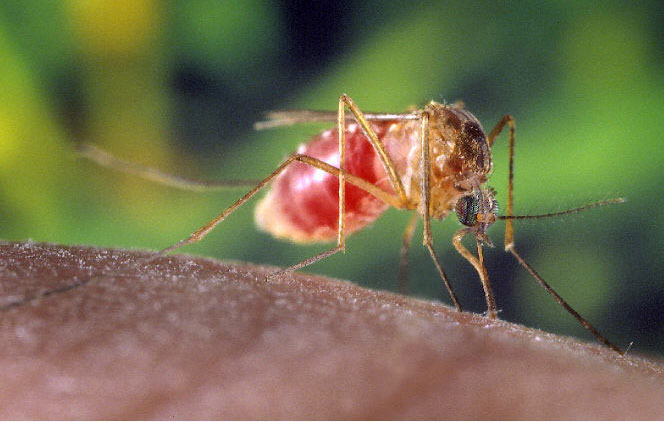Photo: Assemblyman Phil Goldfeder this week called on the city to ramp up efforts to combat West Nile virus, a deadly mosquito-borne illness. Courtesy of Tenn. Dept. of Health.
Assemblyman Phil Goldfeder (D-Howard Beach) this week called on the city to step up efforts to combat West Nile Virus in southern Queens and Rockaway.
With the summer season around the corner; families spending more time outdoors in the coming months; and abandoned properties that serve as ideal breeding grounds for the deadly mosquito-borne illness plaguing Sandy-damaged communities, Goldfeder said he sent a letter to Department of Health and Mental Hygiene Commissioner Mary Travis Bassett, MD, the agency to increase mosquito spraying in southern Queens and Rockaway and use all measures at their disposal to monitor mosquito breeding in the community and alert families to any potential danger. He also encouraged Bassett to work with the Department of Environmental Protection to locate and clean out clogged catch basins that could facilitate mosquito breeding, and to collaborate with the Sanitation Department in enforcing lot cleanings.
Areas prone to mosquito breeding include standing water, road construction sites, clogged sewers and catch basins and obstructed waterways.
“Families in southern Queens and Rockaway are at increased risk from the dangers of West Nile virus,” Goldfeder said. “The higher rate of abandoned properties and construction projects throughout the community following Sandy has only increased our potential for mosquito breeding. That’s why I’m calling on the city take action and protect the health and well-being of our families as we head into summer.”
In response to Goldfeder’s letter, DOHMH said, “The Health Department uses preventive, proactive measures called Integrated Pest Management to reduce mosquito populations and the threat of West Nile virus throughout New York City. We begin larviciding every NYC storm sewage catch basin in May, and three times during mosquito season (from April to October), we will apply larvicide by helicopter to wet, marshy areas known to be heavy mosquito breeding areas that are both unpopulated and hard to reach. This helps kill mosquitoes before they become adults and carriers of West Nile virus. We conduct weekly surveillance for West Nile virus activity throughout the City, and adulticide (‘spray’) will be applied to carefully-delineated areas only if the threat to humans is imminent in those areas, based upon location, species, persistence, and levels of WNV activity in mosquitoes, and findings of WNV in humans or possibly in other animals. Spraying adulticide in populated areas before we have any evidence of WNV activity is neither appropriate, nor will it help protect public health. We also encourage reporting of standing water on private property (via 311 or online at nyc.gov/apps/311) and we inspect virtually every such complaint.”
By Michael V. Cusenza michael@theforumnewsgroup.com

